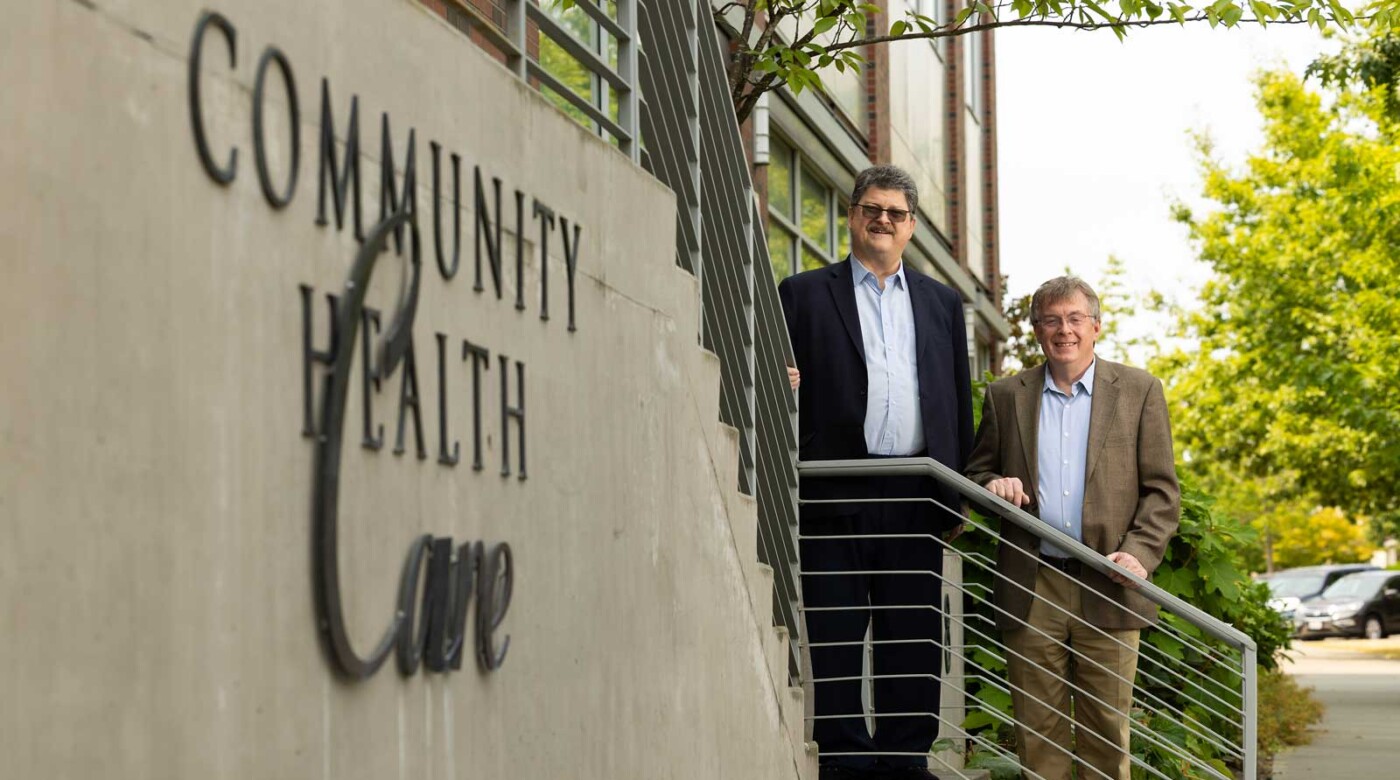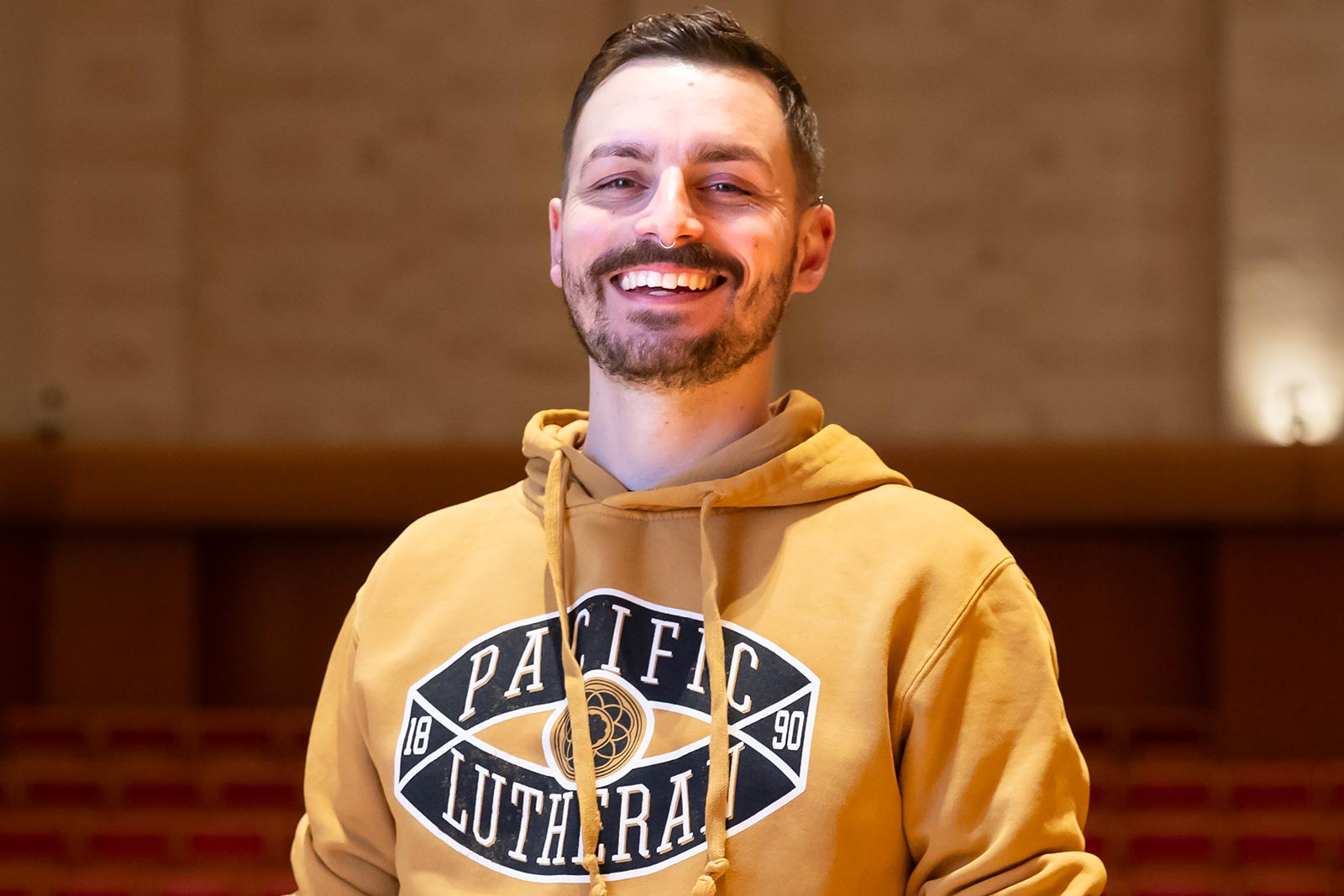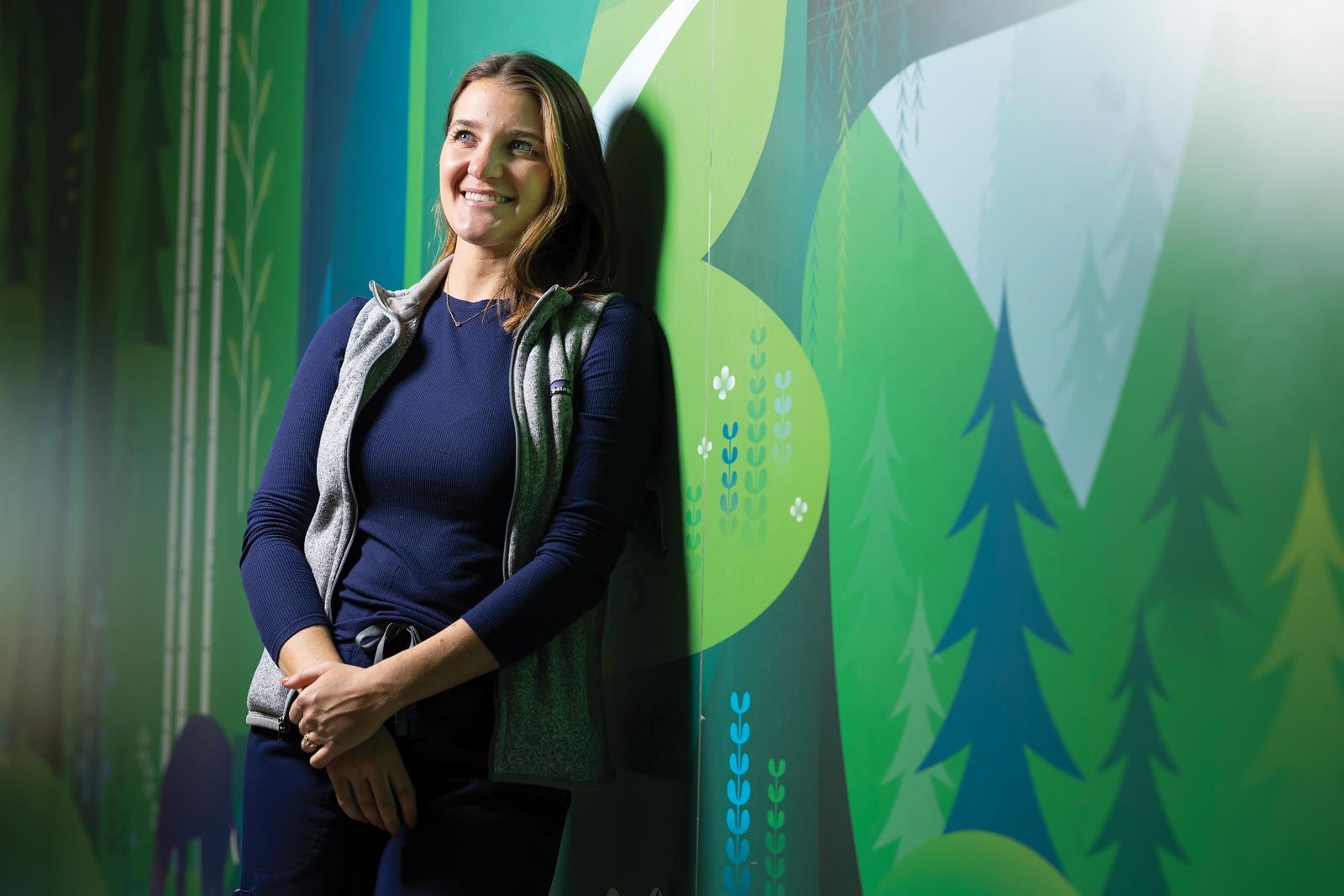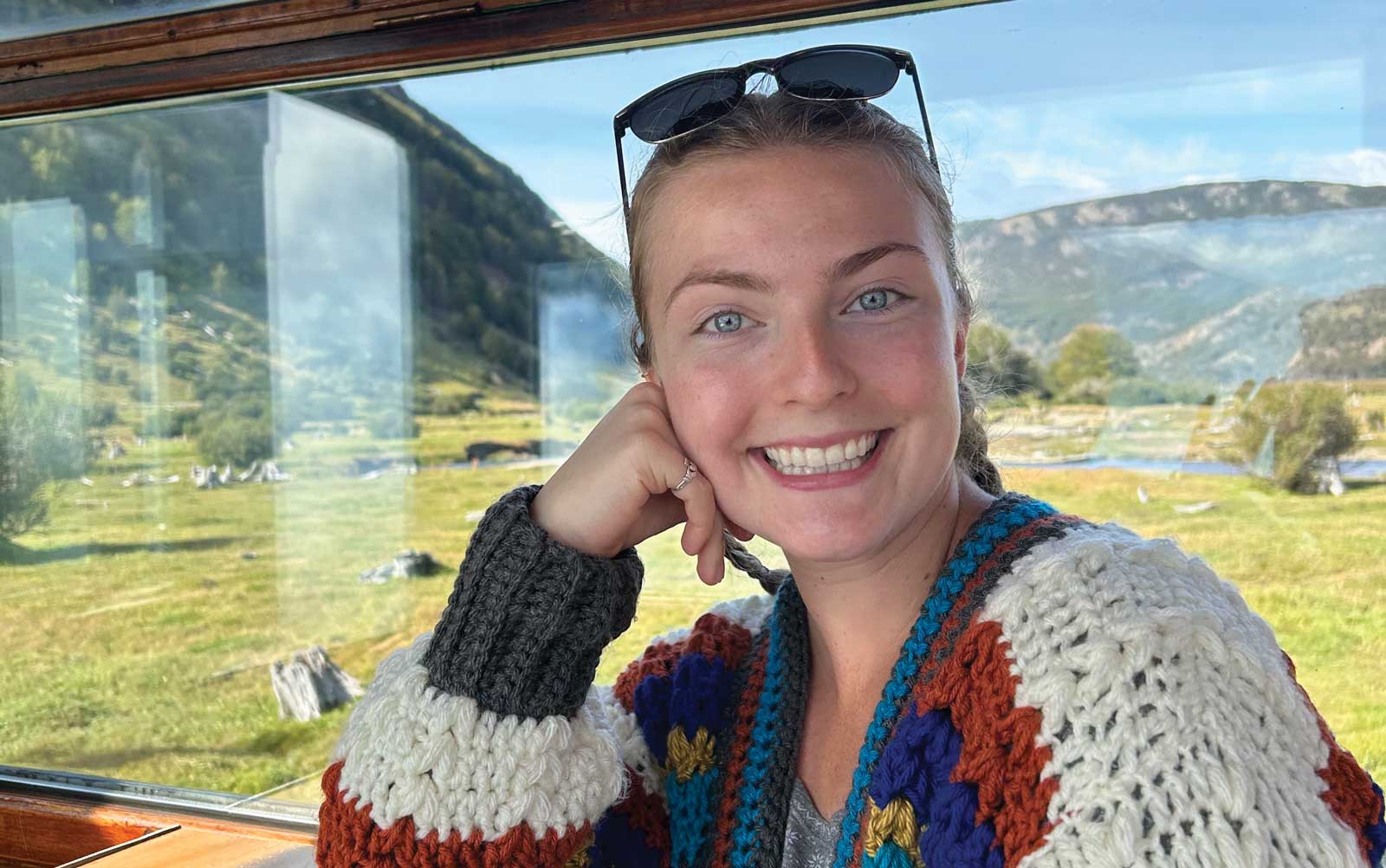In Parkland, a Clinic With PLU Ties Quietly Rewrites the Rules
In an unassuming brick building on Pacific Avenue in Parkland, the Community Health Care clinic hums with a steady rhythm: patients arrive for prenatal appointments, multilingual receptionists welcome patients in English and Spanish, and pharmacists counsel patients picking up their medication.

By Britt Board
It looks and feels like a typical neighborhood clinic, but this place is exceptional. One key difference? No one is turned away due to inability to pay. Those without insurance are charged on a sliding-fee scale based on income and family size. For some patients, that means they can receive lifechanging services at no cost. It’s run by a fiercely dedicated team of providers and staff, serving thousands of people who might otherwise fall through the cracks.
Community Health Care (CHC) is a Federally Qualified Health Center with seven sites in Pierce County committed to providing high-quality, affordable care to anyone who walks through its doors — regardless of insurance status or ability to pay. In 2024, CHC served 54,519 patients across Pierce County through over 200,182 visits. The Parkland clinic offers medical care, maternity support, women’s health services, behavioral health, a pharmacy, and outreach programs that connect patients to food, housing, and employment resources.
Three of us sat down in the staff breakroom to talk about all things CHC: CEO David Flentge ’74, Marketing & Development Director Russ Sondker ’86, and PLU staff writer (yours truly). The clinic has a familial feel. Staff bounce in and out to grab a snack, say hello, and share how much they love CHC. There’s a half-eaten box of donuts on the table and longtime staff exchange jokes. The warmth and care in the room are palpable.
A bonus interviewee, Parkland Clinic Manager Alan Forrester, graciously joined us and gave his time to wax poetic about CHC. “We are a safety net for the community,” says Forrester, who joined CHC after years in the pharmaceutical industry. He shared that this is the first place he has worked that felt meaningful, like the work he’s doing is making a real impact. “CHC is an oasis. When people come here, they’re not just getting care — they’re being seen and heard.”
That connection to mission is reflected throughout the organization. Now preparing for retirement, Flentge finds it especially meaningful to look back on CHC’s growth and the people who shaped it. “Dr. Tanbara, our founding physician, taught us that the patient always comes first,” says Flentge, a PLU alum who has worked at CHC for more than 30 years.
Flentge gets visibly emotional when talking about the legendary Dr. George Tanbara. A pediatrician and Japanese- American leader, the late Tanbara co-founded Community Health Care in response to local hospital closures that had left low-income residents without reliable medical services. After being forcibly incarcerated during World War II at the Heart Mountain internment camp, Tanbara returned to Tacoma and dedicated his life to community-based care, working alongside fellow physicians and civic leaders to open volunteer clinics which eventually evolved into CHC. It’s a story of inclusion, persistence, and compassion. His legacy is seen in the clinics and in the way current staff still invoke his name.
That commitment to care and community still defines CHC today, carried forward by leaders like Flentge who are proud to uphold Tanbara’s vision. Flentge notes, “Some of our patients have never had access to high-quality care before. Our providers are top of their class, and they care deeply.”
Flentge was drawn to community health after earning a degree in social welfare from PLU, where his studies focused on community organizing. After early jobs in group homes and youth services, he joined CHC at a time when the organization was expanding access to underserved areas. “We weren’t just filling gaps — we were building entirely new systems of care where none existed,” he reflects.
We’re trying to take healthcare out to the people,
CHC’s reach has since grown to include clinics in Tacoma, Puyallup, Spanaway, Lakewood, Key Peninsula, and three school-based health centers in the Bethel School District. The school health centers — located inside Bethel Middle School, Graham-Kapowsin High School, and Spanaway Middle School — provide medical, dental, and behavioral health services primarily to low-income students.
“We’re trying to take healthcare out to the people,” says Sondker. “We see a lot of families who can’t afford to take time off work, or travel across town for appointments. Having care in schools limits travel time and ensures kids get what they need.”
Sondker, also a PLU graduate, has been with the organization for over two decades. His background in psychology and nonprofit development is evident in the care with which he tells CHC’s story — especially the moments that illustrate the clinic’s life-changing impact.
“A woman once told me I saved her life,” he shares. “She had stopped coming to the clinic and had a suspicious mole. I encouraged her to come back. It turned out to be cancerous. She had no insurance, but our team took care of it within days. That’s what we do here.”
From the receptionist who became a doctor through CHC’s Family Practice Residency Program, to the outreach worker who connected a pregnant woman who just immigrated to the U.S. with housing, job support, and prenatal care, the stories that fill the halls of the Parkland clinic reflect a belief that healthcare is more than a service — it’s a relationship.
That philosophy aligns closely with Pacific Lutheran University’s values; in many ways, CHC’s story is intertwined with PLU’s. Both Flentge and Sondker are proud PLU alumni, and CHC maintains strong clinical training partnerships with the university’s School of Nursing and Nurse Practitioner program. “PLU prepares people to serve with compassion and integrity,” says Sondker. “That makes a difference in the kind of care we’re able to provide.”
Still, the future isn’t without challenges. As a nonprofit that depends heavily on Medicaid and federal funding, CHC operates within a complex and often unpredictable system. But Flentge is optimistic: “We’ll keep growing. We’ll have more clinics, more school partnerships, and stronger ties with universities like PLU. The plan is that CHC’s Parkland site will one day be replaced by a larger facility with dental care. If people need dental care, they must go up the street to the Spanaway site. The need is there. The mission will continue.”
And so, in a small building just down the road from campus, Community Health Care quietly transforms lives. One visit, one relationship, one community at a time.





